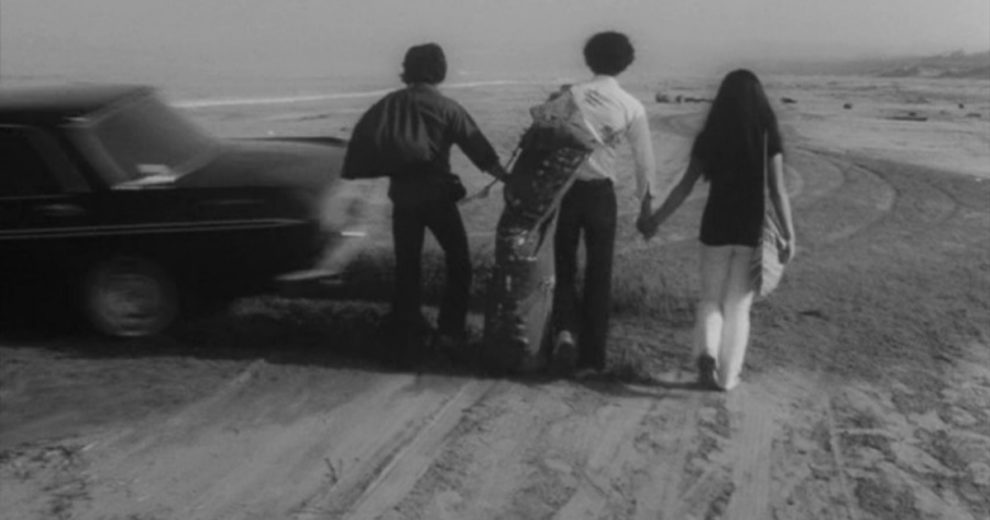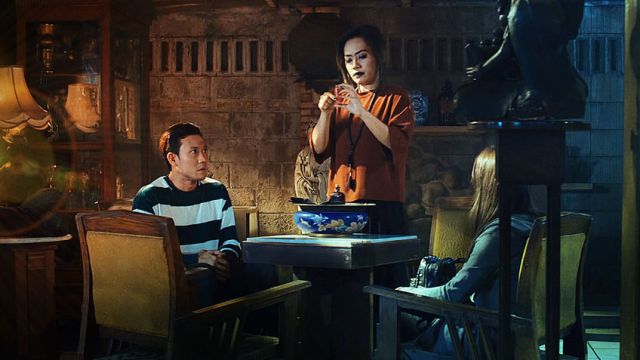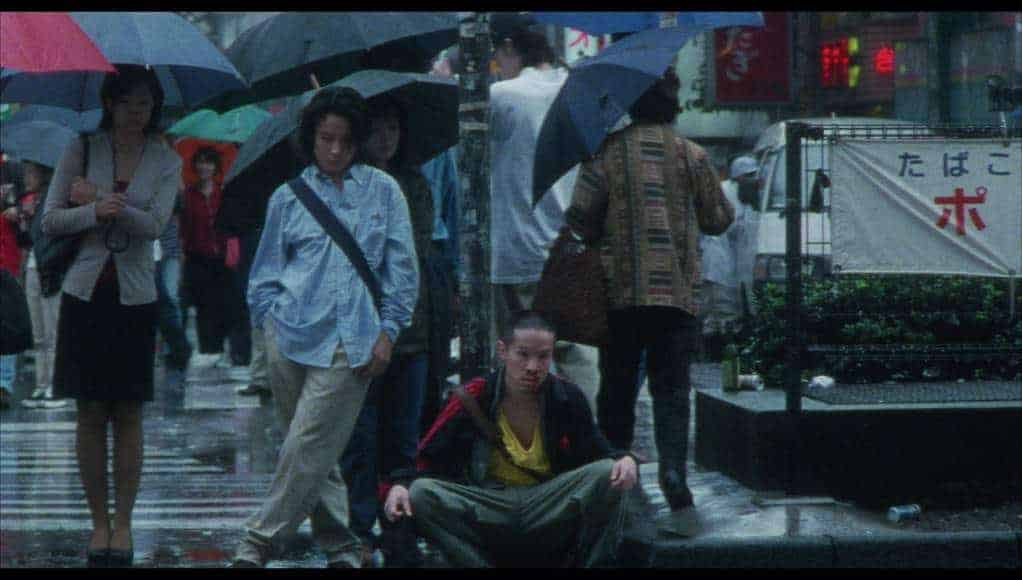Focusing on the aftermath of the failed student revolution of the 1968-69, “Lost Lovers” seems to highlight their defeat by evoking the concepts of former glory and current demise, in a rather unusual road movie which is also filled with (absurd) eroticism.
The protagonist here is Takeru, a former pole vaulting champion, who roams the streets aimlessly, trying to rob people to make a living, while occasionally performing with a band or trying to gather audience to hear his speeches, with all of his endeavors usually resulting in failure. During his “travels” he stumbles upon a young couple who turn out to be deaf-mute, as they perform in a supermarket, and decides to follow them, even though initially the man beats him. Their common trip throughout Honshu brings them into various locations, including the beach and an abandoned military warehouse of sorts. The companionship of the couple, and the whole way they conduct themselves have a huge impact on Takeru, but when some young laborers from the town the warehouse lies take wind of the presence of the girl, all hell breaks loose.
Being the debut feature of documentarian Soichiro Tahara and playwright Konio Shimizu, “Lost Lovers” combines elements of both practices, implementing a documentary-style cinematography, courtesy of Yuji Okumura, and stage play aesthetics, as the monologue heavy performance of Renji Ishibashi as Takeru, points directly towards this direction. At the same time, there is a permeating surrealism that also dominates the narrative, as the reactions and decisions the protagonists make, are not exactly logical in any way. The surrealism also extends to the overall aesthetics, with Mitsuo Kondo's editing being another main element of this approach, as the inclusion of scenes of Takeru practicing pole vaulting, in the most unexpected moment, eloquently highlights.
Through this unusual approach, Shimizu and Takahara make a number of comments, either literally or through metaphors. That sex is a driving force for a number of actions and decisions is one of the most evident, with the carrot incident, the fact that Takeru obviously follows the couple because he lusts for the girl, the frequent intercourse the couple indulge in, even in his presence, and the violent elements that are included towards the end, highlighting this comment in a rather appalling glory.
The same applies to violence, which is presented as a concept existing all over, with both the protagonists and the various characters they meet, indulging in it and suffering from it on occasion.
In terms of metaphor, that the youths of the era are lost is showcased both in Takeru and the couple, with the latter's lack of any means of actual expression mirroring the fate of the young people in general. The same applies that despite their will to live freely, they frequently fall victims to the actions and wills of the “common people”, in a comment that is also connected with the violence and sex already mentioned. As such, and despite an approach that is occasionally quite humorous and happy-go-lucky, particularly in the clownish way Takeru conducts himself, the premises of the movie are rather pessimistic and dramatic.
Renji Ishibashi gives an absurdly impressive performance, which demands from him physical as much as artistic strain, with his almost anorexic physique and his jumping, dancing, singing, fighting, lusting behavior mirroring the movie's aesthetics to the fullest. Kaori Momoi as the silent girl is also impressive as the main source of sensuality and the recipient of the voyeuristic element of the movie, with her overall appearance being rather attractive.
“Lost Lovers” is a strange movie, and at 123 minutes somewhat overextends its welcome, particularly due to its episodic nature. At the same time, it is very entertaining, also due to the intense exploitation elements, and the overall audiovisual approach, with the rock'n'roll soundtrack helping the most in that regard. As such, it definitely deserves a watch, even though it seems to lie on a lower level than the rest of the ATG titles.

















